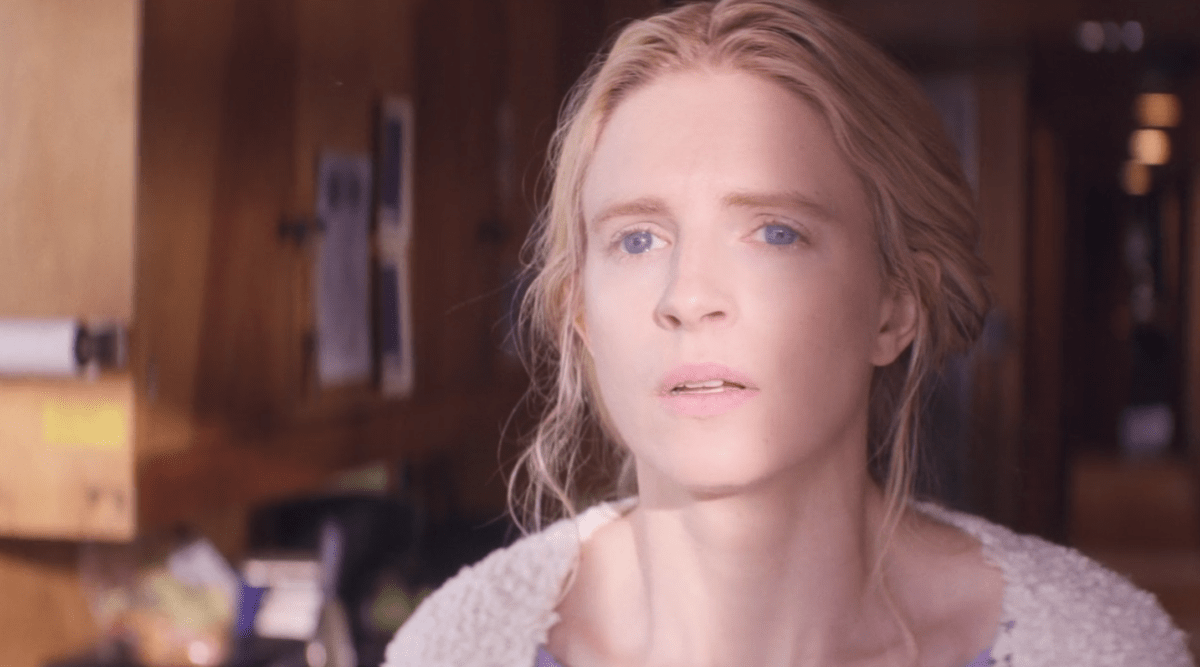The OA‘s Brit Marling Shines a Light on the “Economics of Consent”

“Consent” is a fraught, complicated word. We often talk about it in very black-and-white terms: “No means no!” That is very true. No does indeed mean no. However, consent is not nearly as cut-and-dried as a verbal “no” in a world where women have been trained to expect certain situations, and give away a certain amount of autonomy to survive. Brit Marling, creator and star of Netflix’s The OA among other works, has written an insightful piece on the “economics of consent.”
In a piece for The Atlantic, Marling, like so many others as of late, recounts her Harvey Weinstein story. Hers follows the same template as so many others. Invited to a meeting at a hotel, told by a female assistant that the location has changed to a suite upstairs as opposed to the more public areas of the hotel because “Harvey is busy,” female assistant leaving her alone in the room with him, request for massages, sexual favors, etc.
However, this isn’t the important part of what Marling writes. She seeks to capture and explain the reasons why a woman would stay in that room rather than just tell a Weinstein to go fuck off and leave. Too often, women are blamed for not “handling the situation properly,” or for “putting themselves in that situation in the first place,” without taking into account the myriad things impacting that woman’s life in that moment.
It all starts with women’s financial security, or more often than not, the lack thereof. Marling writes:
“Weinstein was a gatekeeper who could give actresses a career that would sustain their lives and the livelihood of their families. He could also give them fame, which is one of few ways for women to gain some semblance of power and voice inside a patriarchal world. They knew it. He knew it. Weinstein could also ensure that these women would never work again if they humiliated him. That’s not just artistic or emotional exile—that’s also economic exile.
It’s important, too, to keep in mind where this power imbalance comes from. In the U.S., women were only allowed to have credit cards in their own names as of 43 years ago. Men had a two-decade head start (the credit card was invented in 1950). In the 1960s a woman needed to bring a man along to cosign any credit application. It’s stunning how recently women were afforded no financial autonomy. This is, of course, connected to the fact that women didn’t have bodily autonomy either. A woman’s husband could beat her or have sex with her without her consent in this country with no real legal recourse until the 1970s.”
And Marling is admittedly writing this from a place of relative privilege. As a blonde white woman, she understands that she will always have certain things more easily. Her mother instilled in her from an early age that financial independence was the key to female autonomy, and so when Marling went to college, she studied economics, then went to work at Goldman Sachs after graduation. She wanted the autonomy that money can apparently buy. She also had the privilege, after likely saving up a considerable amount, to leave investment banking for a career that “fulfilled” her more: acting and writing.
However, this privilege did not protect her from the oppression that comes with being a woman, A.K.A. a commodity, in Hollywood. The only thing that she cites as remotely saving her is the fact that she is not only an actress, but that she creates her own work. She writes:
“I think for me, I was able to leave Weinstein’s hotel room that day because I had entered as an actor but also as a writer/creator. Of those dual personas in me—actor and writer—it was the writer who stood up and walked out. Because the writer knew that even if this very powerful man never gave her a job in any of his films, even if he blacklisted her from other films, she could make her own work on her own terms and thus keep a roof over her head.”
There was a little more power in the fact that she could create her own stories without having to be dependent on Weinstein bestowing a role on her.
However, there’s also the matter of people being willing to produce and consume the stories that she and other women, people of color, and economically disadvantaged people want to tell. She challenges us to do this, while owning up to her own responsibility:
“Another important step forward would be for all of us to start telling and consuming different stories. If you don’t want to be a part of a culture in which sexual abuse and harassment are rampant, don’t buy a ticket to a film that promotes it. I am as guilty of this as anybody else; sometimes it’s nice to zone out to a film that’s a distraction of epic spectacle. But maybe it’s time to imagine more films that don’t use exploitation of female bodies or violence against female bodies as their selling points. Films with a gender balance and racial balance that better reflect the world we all actually live in. These are challenges I myself am trying to meet, as a series creator, and I have by no means closed the gap between what I aspire to and what I have achieved.”
The entire piece is well worth a read, as Marling ties together the systemic and the Hollywood-specific really nicely, offering solutions that everyone can work on to make Hollywood, as well as the rest of the world, a more equitable and humane place.
(image: Netflix)
Want more stories like this? Become a subscriber and support the site!
—The Mary Sue has a strict comment policy that forbids, but is not limited to, personal insults toward anyone, hate speech, and trolling.—
Have a tip we should know? tips@themarysue.com